| “We don’t do [ Iraqi ] body counts.” |

IRAQ WAR CO$T
(JavaScript Error)
u.s. dead the coffins iraqi casualties |

|
|
guantánamo & abu graib 1 |
|
"The coward wretch whose hand and heart can bear to torture aught below, is ever first to quail and start from the slightest pain
or equal foe."
"I don’t like the term torture. I prefer to call it nastiness."
"Individuals have international duties which transcend the national obligations of obedience…therefore [individual citizens]
have the duty to violate domestic laws to prevent crimes against peace and humanity from occurring."
"The world has also seen the nature of the young men and women who fight on our behalf.
They are showing kindness and respect to the Iraqi people."
"The people you liberate will witness the honorable and decent spirit of the American military."
"We are a compassionate country..."
"Whenever a neoconservative says something should be done, whether it is democracy promotion, or instilling purpose in an
enervated American populace, or diplomacy you can finish the thought for him by adding three little words: by killing people."
|
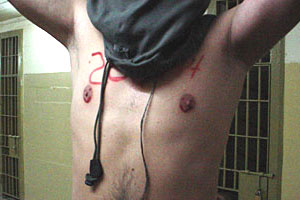 |
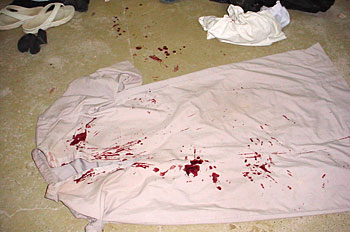 |
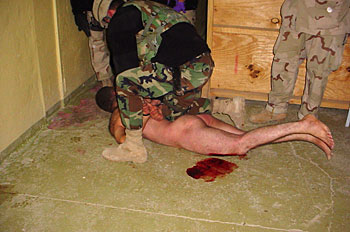 |
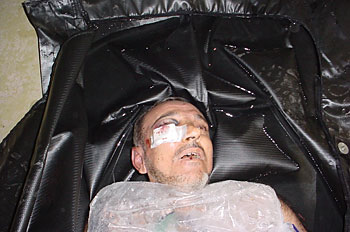 |
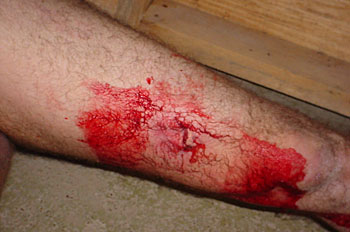 |
 |
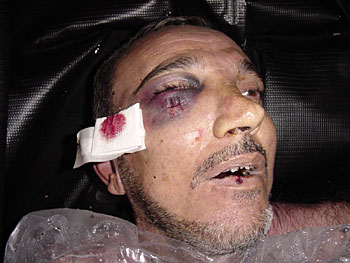 |
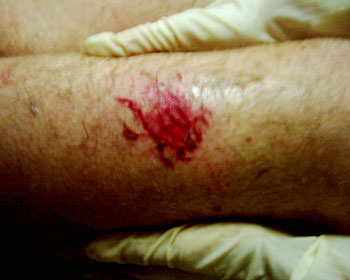 |
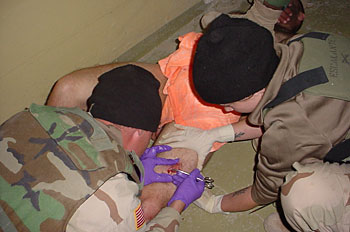 |
 |
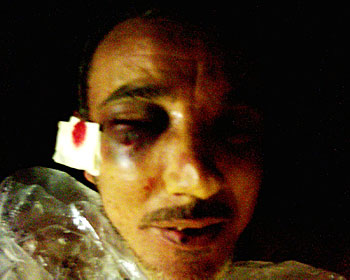 |
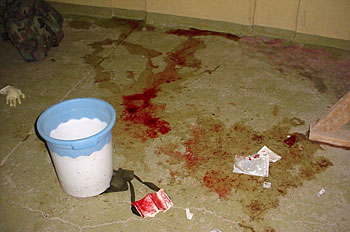 |
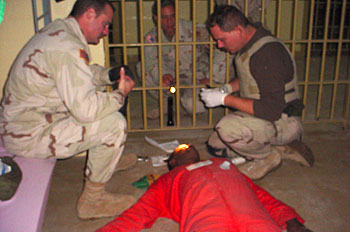 |
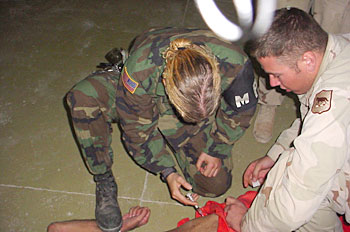 |
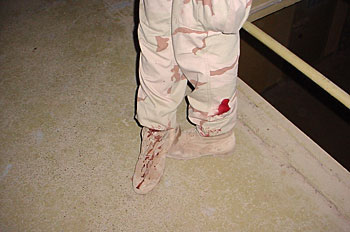 |
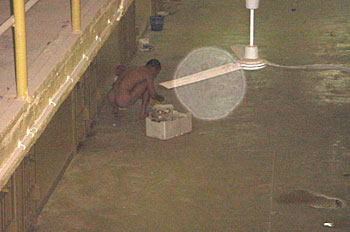 |
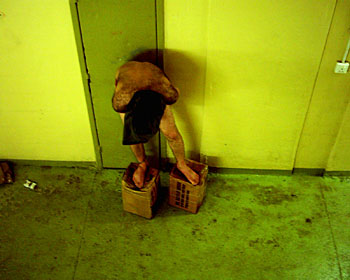 |
 |
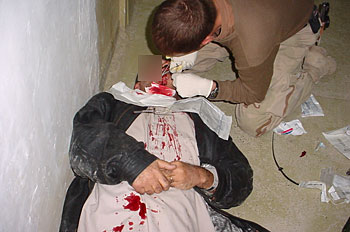 |
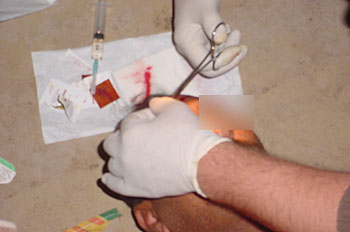 |
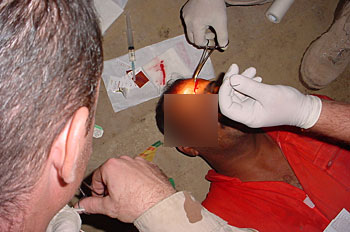 |
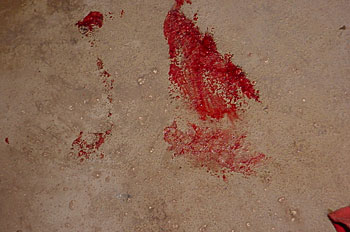 |
 |
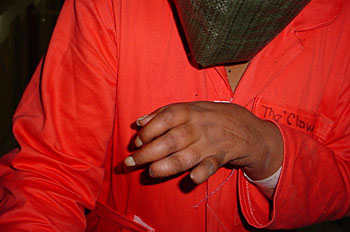 |
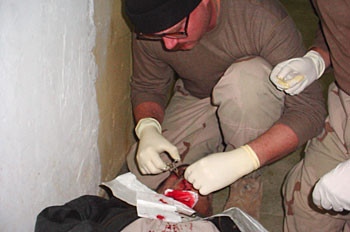 |
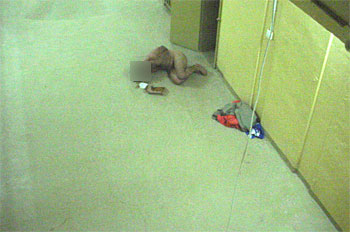 |
 |
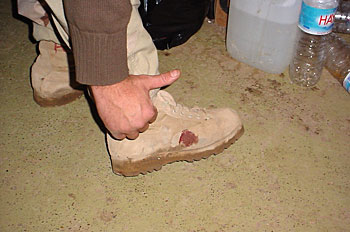 |
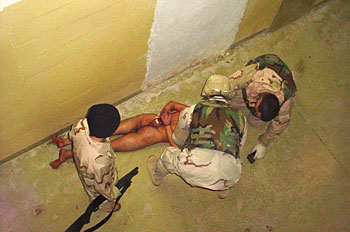 |
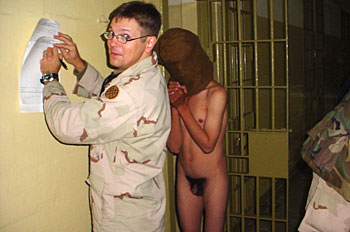 |
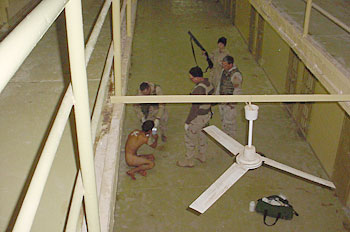 |
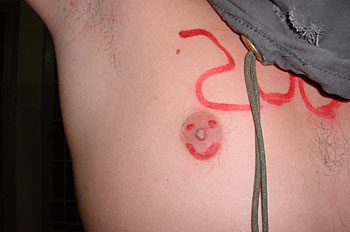 |
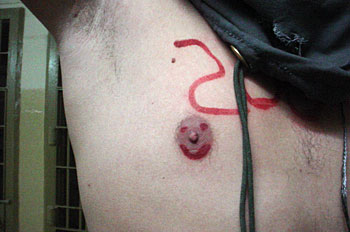 |
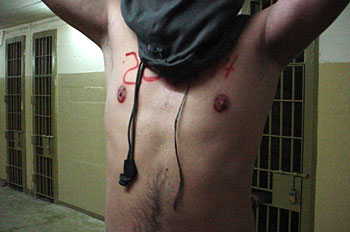 |
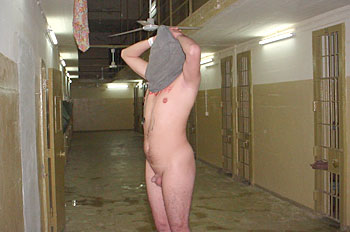 |
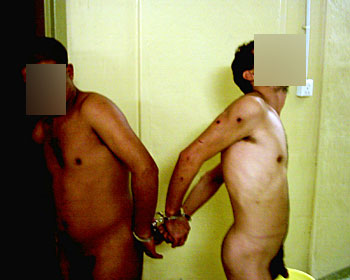 |
 |
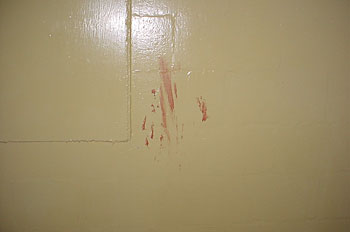 |
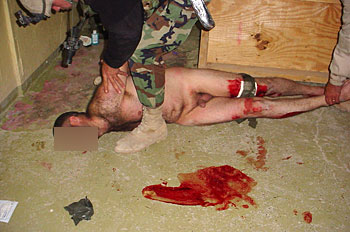 |
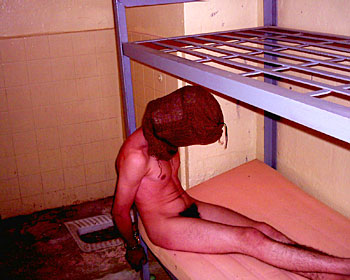 |
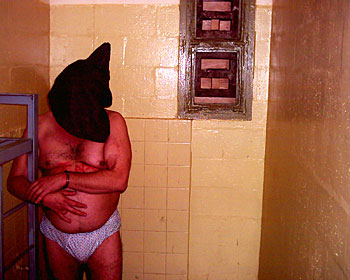 |
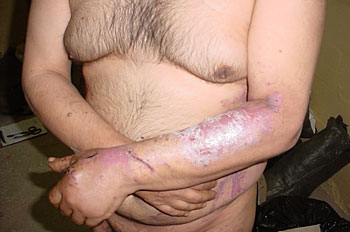 |
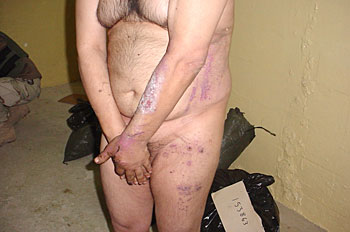 |
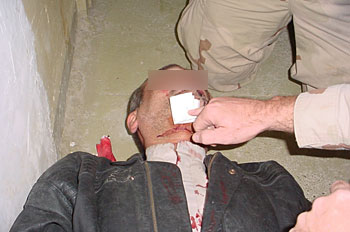 |
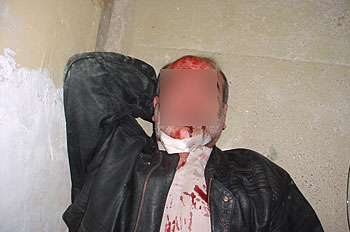 |
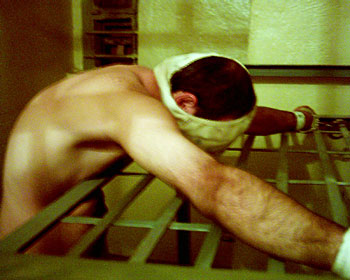 |
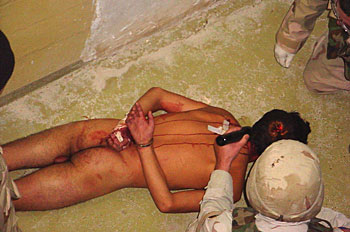 |
 |
|
The War on Women By Ruth Rosen Historian and journalist Ruth Rosen teaches history and public policy at U.C. Berkeley and is a senior fellow at the Longview Institute. A new edition of her most recent book, The World Split Open: How the Modern Women's Movement Changed America (Penguin, 2001), will be published with an updated epilogue in 2007. Abu Ghraib. Haditha. Guantanamo. These are words that shame our country. Now, add to them Mahmudiya, a town 20 miles south of Baghdad. There, this March, a group of five American soldiers allegedly were involved in the rape and murder of Abeer Qassim Hamza, a young Iraqi girl. Her body was then set on fire to cover up their crimes, her father, mother, and sister murdered. The rape of this one girl, if proven true, is probably not simply an isolated incident. But how would we know? In Iraq, rape is a taboo subject. Shamed by the rape, relatives of this girl wouldn't even hold a public funeral and were reluctant to reveal where she is buried. Like women everywhere, Iraqi women have always been vulnerable to rape. But since the American invasion of their country, the reported incidence of sexual terrorism has accelerated markedly. -- and this despite the fact that few Iraqi women are willing to report rapes either to Iraqi officials or to occupation forces, fearing to bring dishonor upon their families. In rural areas, female rape victims may also be vulnerable to "honor killings" in which male relatives murder them in order to restore the family's honor. "For women in Iraq," Amnesty International concluded in a 2005 report, "the stigma frequently attached to the victims instead of the perpetrators of sexual crimes makes reporting such abuses especially daunting." This specific rape of one Iraqi girl, however, is now becoming symbolic of the way the Bush administration has violated Iraq's honor; Prime Minister Nouri al-Maliki has already launched an inquest into the crime. In an administration that normally doesn't know the meaning of an apology, the American ambassador, Zalmay Khalilzad, and the top American commander in Iraq, Gen. George W. Casey Jr., both publicly apologized. In a fierce condemnation, the Muslim Scholars Association in Iraq denounced the crime: "This act, committed by the occupying soldiers, from raping the girl to mutilating her body and killing her family, should make all humanity feel ashamed." Shame, yes, but that is hardly sufficient. After all, rape is now considered a war crime by the International Criminal Court. It wasn't always that way. Soldiers have long viewed women as the spoils of war, even when civilian or military leaders condemned such behavior, but in the early 1990s, a new international consensus began to emerge on the act of rape. Prodded by an energized global women's movement, the General Assembly of the United Nations passed a Declaration on the Elimination of Violence Against Women in 1993. Subsequent statutes in the International Criminal Tribunals for the Former Yugoslavia and for Rwanda, as well as the Rome Statute for the International Criminal Court in July 2002, all defined rape as a crime against humanity or a war crime. No one accuses American soldiers of running through the streets of Iraq, raping women as an instrument of war against the insurgents (though such acts are what caused three Bosnian soldiers, for the first time in history, to be indicted in 2001 for the war crime of rape). Still, the invasion and occupation of Iraq has had the effect of humiliating, endangering, and repressing Iraqi women in ways that have not been widely publicized in the mainstream media: As detainees in prisons run by Americans, they have been sexually abused and raped; as civilians, they have been kidnapped, raped, and then sometimes sold for prostitution; and as women -- and, in particular, as among the more liberated women in the Arab world -- they have increasingly disappeared from public life, many becoming shut-ins in their own homes. Rape and sexual humiliation in prisons The scandal of prisoner abuse at Abu Ghraib focused on the torture, sexual abuse, and humiliation of Iraqi men. A variety of sources suggest that female prisoners suffered similar treatment, including rape. Few Americans probably realize that the American-run prison at Abu Ghraib also held female detainees. Some of them were arrested by Americans for political reasons -- because they were relatives of Baathist leaders or because the occupying forces thought they could use them as bargaining chips to force male relatives to inform on insurgents or give themselves up. According to a Human Rights Watch report, the secrecy surrounding female detentions "resulted from a collusion of the families and the occupying forces." Families feared social stigma; the occupying forces feared condemnation by human rights groups and anger from Iraqis who saw such treatment of women by foreigners as a special act of violation. On the condition of anonymity and in great fear, some female detainees nevertheless did speak with human rights workers after being released from detention. They have described beatings, torture, and isolation. Like their male counterparts, they reserve their greatest bitterness for sexual humiliations suffered in American custody. Nearly all female detainees reported being threatened with rape. Some women were interrogated naked and subjected to derision and humiliating remarks by soldiers. The British Guardian reported that one female prisoner managed to smuggle a note out of Abu Ghraib. She claimed that American guards were raping the few female detainees held in the prison and that some of them were now pregnant. In desperation, she urged the Iraqi resistance to bomb the jail in order to spare the women further shame. Amal Kadham Swadi, one of seven Iraqi female attorneys attempting to represent imprisoned women, told the Guardian that only one woman she met with was willing to speak about rape. "She was crying. She told us she had been raped. Several American soldiers had raped her. She had tried to fight them off, and they had hurt her arm. She showed us the stitches. She told us, 'We have daughters and husbands. For God's sake don't tell anyone about this.'" Professor Huda Shaker, a political scientist at Baghdad University, also told the Guardian that women in Abu Ghraib have been sexually abused and raped. She identified one woman, in particular, who was raped by an American military policeman, became pregnant, and later disappeared. Professor Shaker added, "A female colleague of mine was arrested and taken there. When I asked her after she was released what happened at Abu Ghraib, she started crying. Ladies here are afraid and shy of talking about such subjects. They say everything is OK. Even in a very advanced society in the west it is very difficult to talk about rape." Shaker, herself, encountered a milder form of sexual abuse at the hands of one American soldier. At a checkpoint, she said, an American soldier "pointed the laser sight [of his gun] directly in the middle of my chest? Then he pointed to his penis. He told me, 'Come here, bitch, I'm going to fuck you.'" Writing from Baghdad, Luke Hardin of the Guardian reported that at Abu Ghraib journalists have been forbidden from talking to female detainees, who are cloistered in tiny windowless cells. Senior US military officers who have escorted journalists around Abu Ghraib, however, have admitted that rapes of women took place in the cellblock where 19 "high-value" male detainees were also being held. Asked how such abuse could have happened, Colonel Dave Quantock, now in charge of the prison's detention facilities, responded, "I don't know. It's all about leadership. Apparently it wasn't there." No one should be surprised that women detainees, like male ones, were subjected to sexual abuse at Abu Ghraib. Think of the photographs we've already seen from that prison. If acts of ritual humiliation could be used to "soften up" men, then the rape of female detainees is hardly unimaginable. But how can we be sure? In January, 2004, Lt. Gen. Ricardo Sanchez, the senior U.S. military official in Iraq, ordered Maj. Gen. Antonio M. Taguba to investigate persistent allegations of human rights abuses at Abu Ghraib. The Taguba Report confirmed that in at least one instance a U.S. military policeman had raped at least one female prisoner and that guards had videotaped and photographed naked female detainees. Seymour Hersh also reported in a 2004 issue of the New Yorker magazine that these secret photos and videos, most of which still remain under wraps by the Pentagon, show American soldiers "having sex with a female Iraqi prisoner." Additional photos have made their way to the web sites of Afterdowningstreet.org and Salon.com. In one photograph, a woman is raising her shirt, baring her breasts, presumably as she was ordered to do. The full range of pictures and videotapes are likely to show a great deal more. Members of Congress who viewed all the pictures and videotapes from Abu Ghraib seemed genuinely shaken and sickened by what they saw. Senate Majority Leader Bill Frist, R-Tenn called them "appalling;" then-Senate Minority Leader Tom Daschle described them as "horrific." Ever since the scandal broke in April 2004, human rights and civil liberties groups have been engaged in a legal battle with the Department of Defense, demanding that it release the rest of the visual documents. Only when all those documents are available to the general public will we have a clearer -- and undoubtedly more ghastly -- record of the sexual acts forced upon both female and male detainees. Sexual Terrorism on the Streets Meanwhile, the chaos of the war has also led to a rash of kidnappings and rapes of women outside of prison walls. After interviewing rape and abduction victims, as well as eyewitnesses, Iraqi police and health professionals, and U.S. military police and civil affairs officers, Human Rights Watch released a report in July, 2003, titled Climate of Fear: Sexual Violence and Abduction of Women and Girls in Baghdad. Only months after Baghdad fell to U.S. forces, they had already learned of twenty-five credible allegations of the rape and/or abduction of Iraqi women. Not surprisingly, the report found that "police officers gave low priority to allegations of sexual violence and abduction, that the police were under-resourced, and that victims of sexual violence confronted indifference and sexism from Iraqi law enforcement personnel." Since then, as chaos, violence, and bloodletting have descended on Iraq, matters have only gotten worse. After the American invasion, local gangs began roaming Baghdad, snatching girls and women from the street. Interviews with human rights investigators have produced some horrifying stories. Typical was nine-year-old "Saba A." who was abducted from the stairs of the building where she lives, taken to an abandoned building nearby, and raped. A family friend who saw Saba A. immediately following the rape told Human Rights Watch:
"She was sitting on the stairs, here, at 4:00 p.m. It seems to me that probably he hit her on the back of the head with a gun and then took her to [a neighboring] building. She came back fifteen minutes later, bleeding [from the vaginal area]. [She was still bleeding two days later, so] we took her to the hospital." The medical report by the U.S. military doctor who treated Saba A. "documented bruising in the vaginal area, a posterior vaginal tear, and a broken hymen." In 2005, Amnesty International also interviewed abducted women. The story of "Asma," a young engineer, was representative. She was shopping with her mother, sister, and a male relative when six armed men forced her into a car and drove her to a farmhouse outside the city. They repeatedly raped her. A day later, the men drove her to her neighborhood and pushed her out of the car. As recently as June 2006, Mayada Zhaair, spokeswoman for the Women's Rights Association, a local NGO, reported, "We've observed an increase in the number of women being sexually abused and raped in the past four months, especially in the capital." No one knows how many abducted women have never returned. As one Iraqi police inspector testified, "Some gangs specialize in kidnapping girls, they sell them to Gulf countries. This happened before the war too, but now it is worse, they can get in and out without passports." Others interviewed by Human Rights Watch argued that such trafficking in women had not occurred before the invasion. The U.S. State Department's June 2005 report on the trafficking of women suggested that the extent of the problem in Iraq is "difficult to appropriately gauge" under current chaotic circumstances, but cited an unknown number of Iraqi women and girls being sent to Yemen, Syria, Jordan, and Persian Gulf countries for sexual exploitation. In May 2006, Brian Bennett wrote in Time Magazine that a visit to "the Khadamiyah Women's Prison in the northern part of Baghdad immediately produces several tales of abduction and abandonment. A stunning 18-year-old nicknamed Amna, her black hair pulled back in a ponytail, says she was taken from an orphanage by an armed gang just after the US invasion and sent to brothels in Samarra, al-Qaim on the border with Syria, and Mosul in the north before she was taken back to Baghdad, drugged with pills, dressed in a suicide belt and sent to bomb a cleric's office in Khadamiyah, where she turned herself in to the police. A judge gave her a seven-year jail sentence "for her sake" to protect her from the gang, according to the prison director." "Families and courts," Bennett reported, "are usually so shamed by the disappearance [and presumed rape] of a daughter that they do not report these kidnappings. And the resulting stigma of compromised chastity is such that even if the girl should resurface, she may never be taken back by her relations." Disappearing women To avoid such dangers, countless Iraqi women have become shut-ins in their own homes. Historian Marjorie Lasky has described this situation in "Iraqi Women Under Siege," a 2006 report for Codepink, an anti-war women's organization. Before the war, she points out, many educated Iraqi women participated fully in the work force and in public life. Now, many of them rarely go out. They fear kidnap and rape; they are terrified of getting caught in the cross-fire between Americans and insurgents; they are frightened by sectarian reprisals; and they are scared of Islamic militants who intimidate or beat them if they are not "properly covered." "In the British-occupied south," Terri Judd reported in the British Independent,"where Muqtada al-Sadr's Mehdi's Army retains a stranglehold, women insist the situation is at its worst. Here they are forced to live behind closed doors only to emerge, concealed behind scarves, hidden behind husbands and fathers. Even wearing a pair of trousers is considered an act of defiance, punishable by death." Invisible women -- for some Iraqi fundamentalist Islamic leaders, this is a dream come true. The Ministry of the Interior, for example, recently issued notices warning women not to go out on their own. "This is a Muslim country and any attack on a woman's modesty is also an attack on our religious beliefs," said Salah Ali, a senior ministry official. Religious leaders in both Sunni and Shiite mosques have used their sermons to persuade their largely male congregations to keep working women at home. "These incidents of abuse just prove what we have been saying for so long," said Sheikh Salah Muzidin, an imam at a mosque in Baghdad. "That it is the Islamic duty of women to stay in their homes, looking after their children and husbands rather than searching for work---especially with the current lack of security in the country." In the early 1970s, American feminists redefined rape and argued that it was an act driven not by sexual lust, but by a desire to exercise power over another person. Rape, they argued, was an act of terrorism that kept all women from claiming their right to public space. That is precisely what has happened to Iraqi women since the American invasion of Iraq. Sexual terrorism coupled with religious zealotry has stolen their right to claim their place in public life. This, then, is a hidden part of the unnecessary suffering loosed by the reckless invasion of Iraq. Amid the daily explosions and gunfire that make the papers is a wave of sexual terrorism, whose exact dimensions we have no way of knowing, and that no one here notices, unleashed by the Bush administration in the name of exporting "democracy" and fighting "the war on terror."
|
|
Jailed 2 Years, Iraqi Tells of Abuse by Americans By Michael Moss and Souad Mekhennet
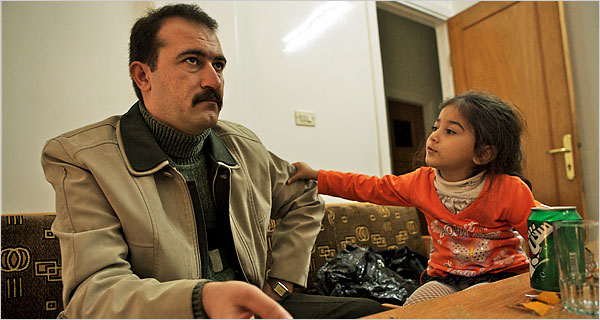 Laith al-Ani, with his daughter, Al Budur, was recently released by the American military in Iraq after spending more than two years in detention facilities. He was never charged with a crime. DAMASCUS, Syria — In the early hours of Jan. 6, Laith al-Ani stood in a jail near the Baghdad airport waiting to be released by the American military after two years and three months in captivity. He struggled to quell his hope. Other prisoners had gotten as far as the gate only to be brought back inside, he said, and he feared that would happen to him as punishment for letting his family discuss his case with a reporter. But as the morning light grew, the American guards moved Mr. Ani, a 31-year-old father of two young children, methodically toward freedom. They swapped his yellow prison suit for street clothes, he said. They snipped off his white plastic identification bracelet. They scanned his irises into their database. Then, shortly before 9 a.m., Mr. Ani said, he was brought to a table for one last step. He was handed a form and asked to place a check mark next to the sentence that best described how he had been treated: “I didn’t go through any abuse during detention,” read the first option, in Arabic. “I have gone through abuse during detention,” read the second. In the room, he said, stood three American guards carrying the type of electric stun devices that Mr. Ani and other detainees said had been used on them for infractions as minor as speaking out of turn. “Even the translator told me to sign the first answer,” said Mr. Ani, who gave a copy of his form to The New York Times. “I asked him what happens if I sign the second one, and he raised his hands,” as if to say, Who knows? “I thought if I don’t sign the first one I am not going to get out of this place.” Shoving the memories of his detention aside, he checked the first box and minutes later was running through a cold rain to his waiting parents. “My heart was beating so hard,” he said. “You can’t believe how I cried.” His mother, Intisar al-Ani, raised her arms in the air, palms up, praising God. “It was like my soul going out, from my happiness,” she recalled. “I hugged him hard, afraid the Americans would take him away again.” Just three weeks earlier, his last letter home — with its poetic yearnings and a sketch of a caged pink heart — appeared in The Times in one of a series of articles on Iraq’s troubled detention and justice system. After his release from the American-run jail, Camp Bucca, Mr. Ani and other former detainees described the sprawling complex of barracks in the southern desert near Kuwait as a bleak place where guards casually used their stun guns and exposed prisoners to long periods of extreme heat and cold; where prisoners fought among themselves and extremist elements tried to radicalize others; and where detainees often responded to the harsh conditions with hunger strikes and, at times, violent protests. Through it all, Mr. Ani was never actually charged with a crime; he said he was questioned only once during his more than two years at the camp. American detention officials acknowledged that guards used electric devices called Tasers to control detainees, but they said they did so rarely and only when the guards were physically threatened. The officials said that detainees had several ways to report abuse without repercussions, and that all claims were investigated. Officials declined to give specific details about why they had detained Mr. Ani or why they had freed him. “He was released because the board that reviewed his case didn’t believe he any longer posed a threat,” said First Lt. Lea Ann Fracasso, a spokeswoman for detention operations, in a written answer to questions. “He was originally detained as a security threat. I don’t have anything more.” The Detention System The American detention camps in Iraq now hold 15,500 prisoners, more than at any time since the war began. The camps are filled with people like Mr. Ani who are being held without charge and without access to tribunals where their cases are reviewed, the Times examination published last December found. Mr. Ani, a women’s clothing merchant, said he was detained in 2004 after American soldiers who were searching for weapons in his six-family apartment building found an Iraqi military uniform in the basement. His joy upon being released in January was short-lived. Days later, he said, a Shiite militia ransacked his home in Baghdad, looking to kill him. He hid, going from house to house, until he could move his family out of Iraq. Now he is among the estimated 1.5 million Iraqis who have taken refuge in neighboring Syria and Jordan, where sectarian rifts are springing up. In one area of Damascus, Shiite refugees from Iraq have established a mini version of Sadr City, the Baghdad neighborhood. Sunni refugees, in turn, are forming their own enclaves. In interviews, former detainees seethed with rage at the United States. One, a 43-year-old man from Samarra, Iraq, said he was released last year despite having fought American troops. “I wish to go back to Iraq and fight against the Americans, God willing,” vowed the man, who spoke on the condition that he be identified only by his nom de guerre, Abu Abdulla, for fear of reprisal. Mr. Ani has other priorities, still exhausted from his detention and preoccupied with finding a permanent home. But he regularly turns his television to a new station called Al Zawra, transfixed by its running montage of videotaped attacks on American troops. The station is owned by a Sunni, Meshaan al-Juburi, a former Iraqi politician who was indicted last year on charges of embezzling millions of American dollars; he denied the charges and returned to Syria, where he lived before the war. The station has become an information center for the Sunni insurgency and in the process has exasperated American and Iraqi forces. In an interview at his office here, Mr. Juburi said that he opposed Al Qaeda’s use of suicide bombers to kill Iraqi civilians but was soliciting support for Iraqis intent on killing American troops. When the image of a roadside bomb blowing up an American Humvee appears on the large flat screen on his office wall, his eyebrows rise and he urges his visitors to watch, “This is a good one.” A Nightmare Begins Mr. Ani’s ordeal began on Oct. 14, 2004, when soldiers brought him in for what he described as desultory questioning. “ ‘Are you married? How many children? Sunni or Shiite? Which mosque do you pray in?’ ” Mr. Ani said he was asked. “I said I didn’t pray, and they said, ‘Are you not Muslim,’ and I said, ‘Yes, but I’m not praying and going to mosques.’ ” “They never asked me about terrorism,” he said. “I’m a normal person, just a usual man, and don’t have anything to do with anyone who was fighting against the Americans.” Mr. Ani spent a total of 44 days at two other American facilities before being sent to Camp Bucca. In all, he said, he was questioned just once at each site. Mr. Ani said the electric prods were first used on him on the way to Camp Bucca. “I was talking to someone next to me and they used it,” he said, describing the device as black plastic with a yellow tip and two iron prongs. He said the prods were commonly used on him and other detainees as punishment. “The whole body starts to shake and hurt,” he said. “And you lose consciousness for a couple of seconds. One time they used it on my tongue. One guard held me from the left and another on my back and another used it against my tongue and for four or five days I couldn’t eat.” In a separate interview, the insurgent from Samarra said such a device had been used on him for speaking out of turn. Ahmed Majid al-Ghanem, 50, a former Baath Party official who was also freed from Camp Bucca and is now living in Syria, said in a separate interview that he witnessed the electric prods being used as punishment on other detainees. The Times interviewed Mr. Ani at his apartment in Damascus, the Syrian capital, where he sat on a couch with his parents, wife and children. When he demonstrated how he had been held for the electric prod, his 4-year-old daughter, Al Budur, mimicked his actions. Lt. Col. Keir-Kevin Curry, a detention system spokesman, said: “Every use of less than lethal force, to include use of Tasers, is formally reported by facility leadership, ensuring soldiers are in accordance with proper use. Touching a Taser to someone’s tongue is not one of the approved uses.” Mr. Ani said guards treated him kindly when he arrived at the jail on Nov. 20, 2004. He recalls being given soap, and, when his hands cracked from the cold, a soldier bringing him lotion and socks. But soon new guards came “who had had special thoughts,” he said. “They were not allowing us to talk. They cut off the salt, gave us food that was not fit for dogs. One guard named David sometimes brought us outside to stay in the sun, or when it was cold. He also didn’t respect our faith, telling us not to pray here, and when we moved not to pray there.” The detainees also began fighting among themselves. Those who spoke to the American guards were ostracized. Long toilet lines further raised tensions. One day the guards searched a makeshift prayer area, Mr. Ani said, “and they started to step on the Korans, which fell down.” “A fight started,” he continued. “There was a huge demonstration. The prisoners started to throw their shoes at the guards, and we started to beat them with empty plastic bottles. The guards shot at us with rubber bullets, but then prisoners were killed and others were injured.” A Pentagon statement at the time described such an incident in January 2005, saying that four detainees were killed when guards were compelled to use deadly force to quell the riot and that it was set off by a search for contraband. Colonel Curry said an investigation concluded that a detainee leader had fabricated the Koran allegations to instigate violence. Mr. Ani and other former detainees said there were frequent demonstrations to protest various grievances. Mr. Ghanem said he was released in late 2003 after hunger strikes forced camp officials to review his case and those of others. Detention officials said they were also fighting radicalization at the camps and were trying to identify and isolate extremists. Former detainees said in interviews that the influence of Islamic extremists was still growing. At Camp Bucca, they said, hundreds of men formed a group called the Brothers. Members shaved their beards and otherwise masked their ideology so they would be placed with other detainees. Mr. Ani generally slept in a wooden barrackslike structure, with a mattress on the ground and a nail on the wall for hanging clothes. Once, when the guards found an improvised needle that he said was used to repair clothes, he was taken to an isolated cell, where he was kept for 24 days. “You cannot see the difference between day and night,” he said. “There was no opening, not even in the door.” Colonel Curry said it was standard to discipline detainees when they did not follow procedure. Mr. Ani despaired of ever being released. His letter that was printed in The Times ended with, “I hope I can be dust in the storms of Bucca so that I can reach you.” Dangers Beyond Jail “I didn’t see any kind of solution for me,” Mr. Ani said after his release. “The only solution was to die,” he said, his eyes welling with tears. “I was hoping to die.” In releasing Mr. Ani, the American military transferred him to Camp Cropper in Baghdad and gave him $25, which he and his parents used to hire a taxi. Along the way home, they had to dodge Shiite-controlled checkpoints, and just days later, he said, he narrowly escaped capture by a Shiite militia. Mr. Ani and other Iraqis say they believe these militias have found a way to learn when Sunni men are released from jail and then hunt and kill them. Maj. Gen. John D. Gardner, commander of American detainee operations, said that he had heard such concerns and that he was trying to alter the process of releasing detainees to improve their safety. Mr. Ani said that for him there was only one way to stay alive: flee Iraq. He said he was scared and puzzled about his next step. He said he felt that he could not stay in Syria, if only because work was scarce. But he must compete with other refugees for the attention of another host country. “Until now, I can’t sleep, really,” he said. “Whenever I hear something noisy I stand up. I’m in a very bad psychological situation. I can’t stop thinking of what we should do. I don’t have a future here. How should we live?” When his uncle put on Al Zawra, the satellite television station, Mr. Ani turned to look at the scenes of Sunni children who had been killed and the attacks on American soldiers. “I am an Iraqi,” he said. “I love my country. Of course, everyone who is an Iraqi at the moment, we are thinking how can we support our country.” “The United States through its actions made people hate the Americans much more than before.”
|